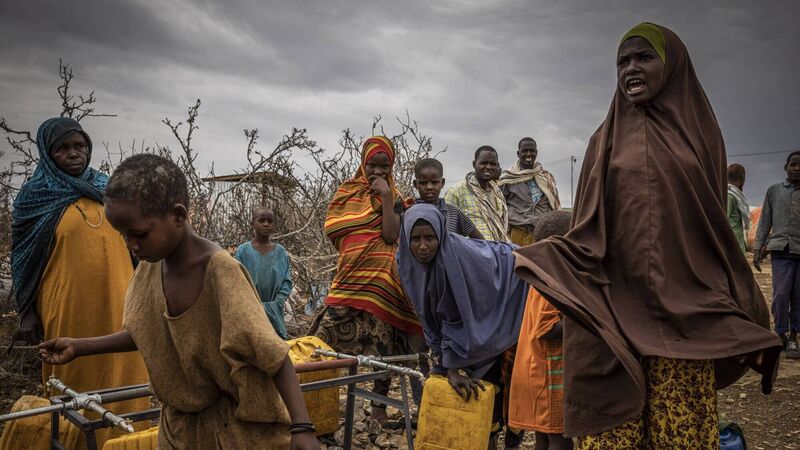Letters to the Editor: Long-term solutions for food insecurities

People try to fill water bottles in a displacement camp for people impacted by drought in Baidoa, Somalia last month. Picture: Ed Ram/Getty Images
Try from €1.50 / week
SUBSCRIBEWe (139 signatories, list of which is with the Editor) welcome recent attention in the Irish Examiner to the global food crisis — ‘Horn of Africa: The developed world must now show solidarity with those on the brink’ (October 22). We would like to encourage further in-depth, non-sensational, and independent reporting in this and other media outlets.
As a result of a delayed global response, the 2011 famine claimed the lives of more than 260,000 people in Somalia, half of them children under five. This does not have to happen again.
Already a subscriber? Sign in
You have reached your article limit.
Annual €130 €80
Best value
Monthly €12€6 / month
Introductory offers for new customers. Annual billed once for first year. Renews at €130. Monthly initial discount (first 3 months) billed monthly, then €12 a month. Ts&Cs apply.
Newsletter
Sign up to the best reads of the week from irishexaminer.com selected just for you.

Select your favourite newsletters and get the best of Irish Examiner delivered to your inbox
Monday, February 16, 2026 - 8:00 AM
Monday, February 16, 2026 - 8:00 AM
Monday, February 16, 2026 - 9:00 AM
© Examiner Echo Group Limited